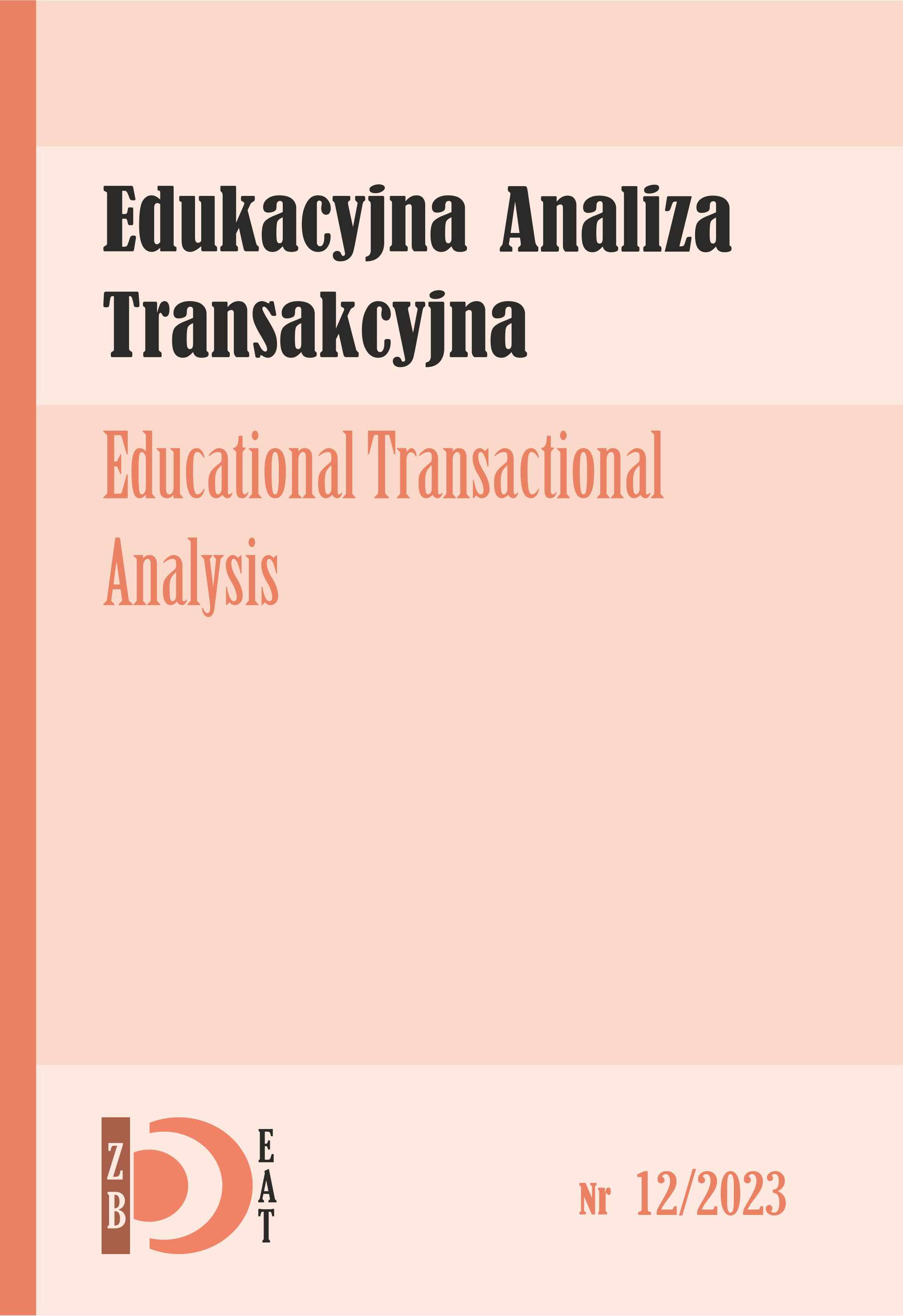The idea of universal design in the educational process at the University. "Universal design as a space of equal opportunities and accessibility for people with disabilities"
- Authors
-
-
Wioletta Sołtysiak
Uniwersytet Jana Długosza w Częstochowie
-
- Keywords:
- universal designe, accessibility, inclusion, competences, skills
- Abstract
-
The article presents the concept of universal design in the educational process at University in the context of the author’s participation in the project called “Universal design as a space of equal opportunities and accessibility for people with disabilities.” To achieve the aforesaid aim, professional literature was studied, project tasks were discussed and the idea of universal design was referred to taking into account contemporary educational space. The author writes about the inclusion of universal design in the teaching-learning process at University, about the inclusion of teaching and accessibility which is a key-word for the idea of universal design. The aim of the project was achieved. Both the lecturers and the students gained more awareness of accessibility. Within the framework of realizing the project tasks, the author studied, among all, the rules of universal design and their practical use. The participants obtained knowledge, competencies and skills, which should allow for using them in the social sphere, in their professional practice.
- Downloads
-
Download data is not yet available.
- References
-
Brown, S. (1999). The curb ramps of Kalamazoo: discovering our unrecord-ed history. Disability Studies Quarterly, 9(3), 203–205.
Bajkowska, M.M., Perkowski T. (2022). Projektowanie uniwersalne w prze-strzeni uniwersyteckiej – idee, możliwości, dobre praktyki. Białystok: Wydawnictwo Uniwersytetu w Białymstoku.
Chudy, W. (2001). Człowiek niepełnosprawny w świetle filozofii. In: P. Ma-zanek (ed.), Filozofia i teologia w życiu człowieka (pp. 113–126). War-szawa: Uniwersytet Kardynała Stefana Wyszyńskiego.
Gawron, G. (2015). Universal design – projektowanie uniwersalne jako idea w dążeniu do osiągania partycypacji społecznej osób niepełnospraw-nych. Roczniki Nauk Społecznych, 7(43), 1, 1–9; http://dx.doi.org/10.18290/rns.2015.7(43).
Gawron, G., Rojek-Adamek, P. (2017). Again in place. Design w obronie wieku. Kultura Popularna, 2(52), 4–19; http://dx.doi.org/10.5604/01.3001.0010.7046.
Hansen, A. (2005). Education in Norway – equality, nature and knowledge. In: E. Maagerø, B. Simonsen (eds.), Norway: society and culture. Kri-stiansand: Portal.
Jagiełło-Kowalczyk, M., Tokarski, Ł. (2022), Inspiracje dziedzictwem przy-rodniczym i kulturowym w projektowaniu wnętrz. Housing Environ-ment. Współczesna architektura mieszkaniowa w przestrzeni miasta, 41, 93–102; http://dx.doi.org/10.4467/25438700SM.22.033.17156.
Jówko, E. (2022). Projektowanie uniwersalne. Innowacja w kształceniu stu-dentów Uniwersytetu Przyrodniczo-Humanistycznego w Siedlcach. Stu-dent Niepełnosprawny. Szkice i Rozprawy, 22(15), 65–72; http://dx.doi.org/10.34739/sn.2022.22.06.
Jurkowska, A. (2002). Idea projektowania uniwersalnego w planowaniu przestrzennym. Architectus, 1(11), 155–158.
Mace, R.L. (1985). Universal Design. Barrier-Free Environments for Every-one. Designers West, 33, 1.
Nilsen, S. (2010). Moving towards an educational policy for inclusion? Main reform stages in the development of Norwegian unitary school system. International Journal of Inclusive Education, 5.
Stankiewicz, T. (2023). Epistemologiczne i antropologiczne aspekty projek-towania uniwersalnego. Paideia, 5, 89–112.
Wróblewska, U. (2022). Projektowanie uniwersalne w przestrzeni uniwersy-teckiej – idee, możliwości, dobre praktyki. In: M.M. Perkowska, T. Baj-kowski (eds.), Historia amerykańskiego uniwersalnego projektowania w kontekście ludzkich doświadczeń – twórcy, luminarze i propagatorzy idei (pp. 57–77). Białystok: Wydawnictwo Uniwersytetu w Białymstoku.
Uchwała w sprawie ustanowienia rządowego programu “Dostępność plus” (2018). Online: https://www.gov.pl/web/premier/uchwala-w-sprawie-ustanowienia-rzadowego-programu-dostepnosc-plus [Accessed: 20.10.2023].
- Downloads
- Published
- 2023-12-28
- Issue
- No. 12 (2023)
- Section
- On the border of fields
- License
-
Copyright (c) 2023 Wioletta Sołtysiak

This work is licensed under a Creative Commons Attribution 4.0 International License.
AUTHOR'S STATEMENT
I am aware that the Educational Transactional Analysis journal is published under a Creative Commons license - Attribution (https://creativecommons.org/licenses/by/4.0/legalcode).
By submitting the article, I agree to make it available under this license
How to Cite
Similar Articles
- Milena Miałkowska-Kozaryna, Do Studies Provide Knowledge, Skills, and Social Competences – Are You Sure? , The Educational Transactional Analysis: No. 13 (2024)
- Marika Oracz, Kinga Tworzowska, Paulina Jędrczyk, Anna Pierzchała, Adults' dreams. The first step of characterization using transactional analysis , The Educational Transactional Analysis: No. 11 (2022)
- Anna Pierzchała, Family situation in childhood and adolescence and scripting in terms of transactional analysis. Research report , The Educational Transactional Analysis: No. 11 (2022)
- Karol Motyl, Let's work or play game! The teachers' lounge in the light of transactional analysis theory , The Educational Transactional Analysis: No. 14 (2025)
- Sara Pellegrini, Interdisciplinarity , disability and inclusion: knowing to educate , The Educational Transactional Analysis: No. 13 (2024)
- Bożena Uścińska, mgr, Nauczycielskie okopy Świętej Trójcy , The Educational Transactional Analysis: No. 1 (2012)
- Zbigniew Łęski, dr, Personality structure of computer users from the perspective of transactional analysis , The Educational Transactional Analysis: No. 4 (2015)
- Dorota Gębuś, dr, The Use of Mind Maps in the Teaching Process , The Educational Transactional Analysis: No. 3 (2014)
- Jarosław Jagieła, dr hab. prof. AJD, [rev.] J. Mróz and K. Kaleta (ed.), Psychological and Educational Skills in Teachers’ Work , The Educational Transactional Analysis: No. 2 (2013)
- Anna Pierzchała, dr, Transactional Injunctions and Counterinjunctions of the Script in the Hidden School Program , The Educational Transactional Analysis: No. 6 (2017)
You may also start an advanced similarity search for this article.


